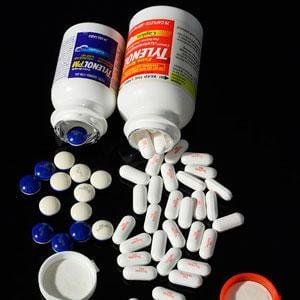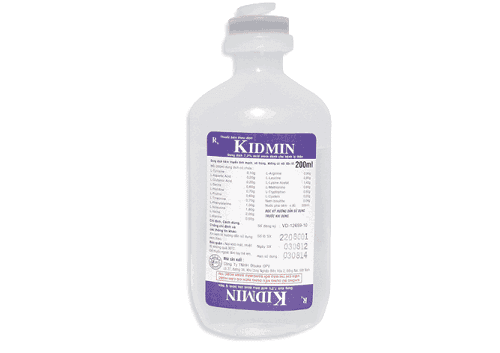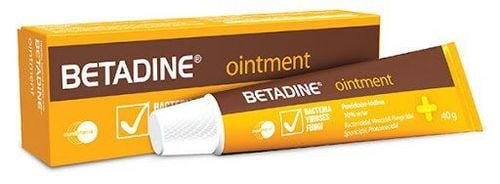Nocid contains alpha-keto acid amino acids and calcium, which help supplement amino acids in the body when protein intake is limited to no more than 40g/day. Therefore, Nocid is indicated for patients with renal failure to help inhibit the progression to dialysis stages.
1. What is Nocid, and what are its ingredients?
To understand what Nocid is, you need to know the ingredients contained in this medication:
Nocid contains five essential amino acids for the body:
- L-Lysine
- L-Tryptophan
- L-Histidine
- L-Threonine
- L-Tyrosine
Additionally, it contains α-keto acids.
When in the body, α-keto acids undergo metabolic processes by acquiring nitrogen from unnecessary amino acids. These groups are then reused, contributing to the reduction of urea formation.
Moreover, α-keto acids have positive effects on conditions such as hyperphosphatemia and secondary hyperparathyroidism in renal patients. They can also improve disorders related to renal atrophy distribution.
2. Indications and contraindications of Nocid
2.1. Indications
Nocid provides amino acids to the body when protein intake is limited to no more than 40g/day. Therefore, this medication is commonly used in patients with chronic renal failure.
2.2. Contraindications
- Nocid is contraindicated in the following cases:
- Individuals allergic to any component of Nocid
- Individuals with hypercalcemia, hereditary phenylketonuria, or amino acid metabolism disorders.
3. Usage and dosage of Nocid
3.1. Usage
- Administration: Orally taken
- Timing: The medication should be taken with meals to ensure optimal absorption of Nocid.
- When taking Nocid, patients should swallow the tablets whole with a glass of water, without breaking or crushing the tablets.
3.2. Dosage
Patients should take Nocid according to the specific instructions provided by their doctor or pharmacist. The following dosage is for reference:
- Adults (or individuals weighing over 70 kg): Take 4-8 tablets per dose, three times a day.
The above dosage is only for reference. The specific dosage will depend on the patient's condition and health. Therefore, always follow the doctor's instructions for the most effective use of the medication.
4. Management of missed or overdosed doses of Nocid
Patients should manage missed or overdosed doses as follows:
- Missed dose: Patients should make every effort to avoid missing a dose of Nocid to ensure its maximum effectiveness. If a dose is missed, it should be taken as soon as remembered. Do not double the prescribed dose to compensate for the missed dose.
- Overdose: Currently, there have been no recorded symptoms of Nocid overdose. However, in case of overdose or accidental ingestion of more than the prescribed amount, contact your doctor or go to the nearest healthcare facility immediately for timely intervention and to prevent health complications.
5. Side effects when using Nocid
Currently, no side effects of Nocid have been reported. However, patients should not be complacent. If any unusual symptoms occur while using Nocid, contact your doctor or go to the nearest healthcare facility immediately for timely intervention.
6. Drug interactions
Medications such as Tetracycline, Norfloxacin, Ciprofloxacin, iron, fluoride, and medications containing Estramustine may interact with the calcium in Nocid, affecting its absorption. Therefore, patients should take Nocid at least 2 hours apart from these medications.
To ensure safety, patients should inform their doctor or pharmacist about all medications, supplements, and herbal products they are currently using to receive advice on the most effective way to take Nocid.
7. Precautions when using Nocid
- Use in pregnant and breastfeeding women: Currently, there are no studies on the effects of Nocid on pregnant and breastfeeding women. Therefore, to ensure safety, patients should consult their doctor before using this medication.
- Individuals driving and operating machinery: Nocid does not affect the ability to drive or operate machinery.
Additionally, there are special precautions:
- Nocid may cause hypercalcemia; therefore, it is advisable to reduce Vitamin D intake. If hypercalcemia persists, the dosage of Nocid should be reduced, and other sources of calcium in the body should be limited.
- Serum calcium levels should be monitored weekly to adjust the dosage accordingly.
Store Nocid in a dry, cool place, at a temperature not exceeding 30°C. Check the expiration date before use. Avoid direct sunlight exposure to the storage area. Keep out of reach of children and pets.
In summary, Nocid contains alpha-keto acid amino acids and calcium, which help supplement amino acids in the body when protein intake is limited to no more than 40g/day. Therefore, Nocid is indicated for patients with renal failure to help inhibit the progression to dialysis stages.
Follow the Vinmec International General Hospital website to stay updated on health, nutrition, and beauty information to protect your health and the health of your loved ones.
Please dial HOTLINE for more information or register for an appointment HERE. Download MyVinmec app to make appointments faster and to manage your bookings easily.
To arrange an appointment, please call HOTLINE or make your reservation directly HERE. You may also download the MyVinmec app to schedule appointments faster and manage your reservations more conveniently.








